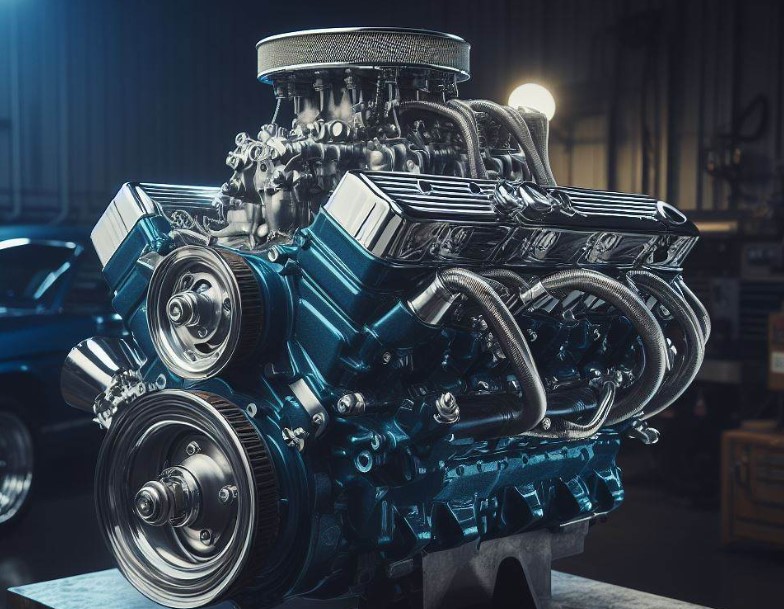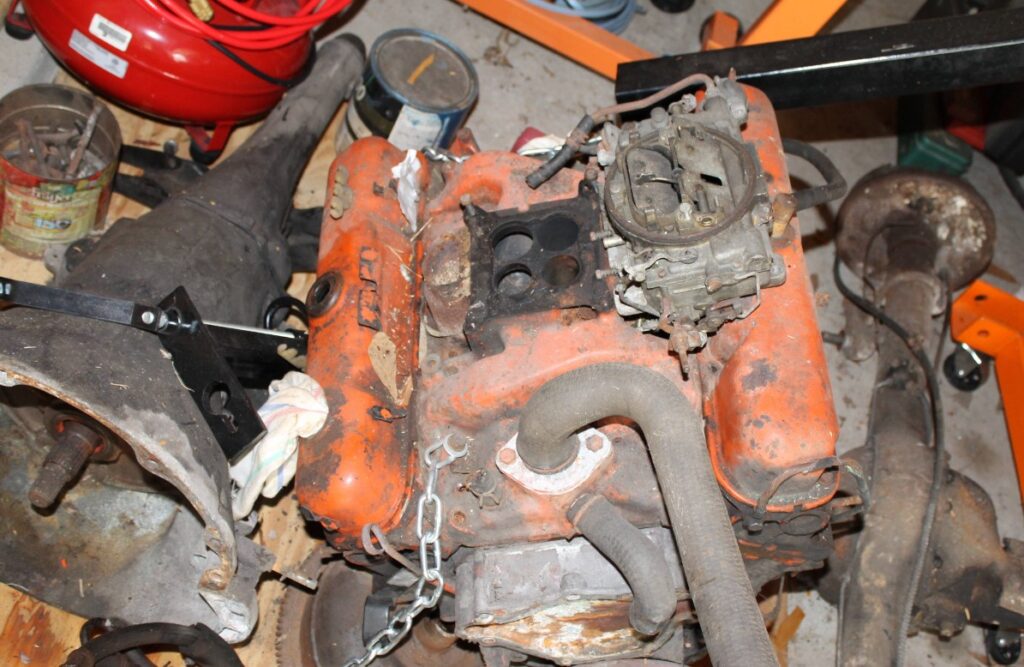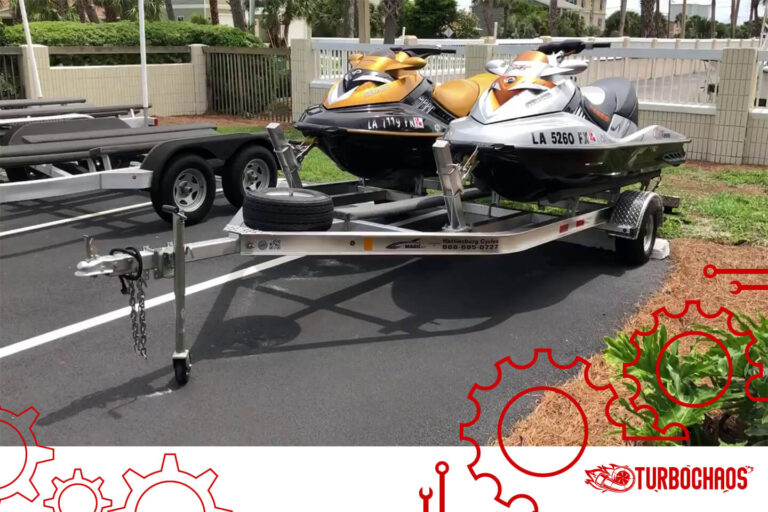How Much Is A 340 Engine Worth? Quick Answer
When diving into the world of classic cars and their components, one question often emerges: How Much Is A 340 Engine Worth? This question is not just about a price tag; it encompasses a deep understanding of automotive history, the engine’s performance, and its rarity. The 340 engine, a legendary powertrain from the muscle car era, is renowned for its robust performance and its role in automotive history. Its value is influenced by various factors including condition, originality, and market demand.
Key Takeaways
- The value of a 340 engine depends on factors like condition, originality, and market trends.
- Fully restored or original 340 engines fetch higher prices.
- The 340 engine’s performance and historical significance contribute to its worth.
How Much Is A 340 Engine Worth?
The value of a 340 engine can vary widely, typically ranging from a few thousand dollars to over $10,000. This price range depends on factors like the engine’s condition, authenticity, whether it has matching numbers and its overall rarity. Fully restored or original 340 engines with documented history tend to fetch higher prices.

Factors Influencing the Value of a 340 Engine
Condition and Authenticity
The condition of a 340 engine plays a pivotal role in determining its worth. A fully restored or well-maintained original engine can command a high price. On the other hand, engines needing extensive repairs or missing key components are valued lower.
Authenticity is also crucial; engines with matching numbers and original parts are more sought after by collectors and enthusiasts.
Market Trends and Demand
The automotive collector market significantly impacts the value of classic engines like the 340. The popularity of muscle cars and the demand for specific models or engine types can cause prices to fluctuate. Understanding current market trends is essential for accurately assessing the value of a 340 engine.
Historical Significance of the 340 Engine
Its Place in Muscle Car History
The 340 engine, produced by Chrysler from 1968 to 1973, is a significant part of muscle car history. Known for its high performance and reliability, it powered iconic vehicles like the Plymouth Barracuda and Dodge Challenger. Its historical importance adds a premium to its value, especially among enthusiasts and collectors.
Performance and Engineering
The 340 engine was celebrated for its balance of power and agility. With a high power-to-weight ratio, it offered superior performance compared to its contemporaries. This engineering feat contributes to its desirability and worth in today’s market.
Comparative Analysis: 340 Engine vs. Other Classic Engines

Performance Comparisons
When compared to other engines from the muscle car era, the 340 stands out for its unique balance of power and efficiency. Its performance metrics often surpass those of similar-sized engines, making it a preferred choice for enthusiasts.
Market Value Comparison
In terms of market value, the 340 engine often has a higher worth compared to other engines from the same era. This is due to its rarity, performance, and the iconic vehicles it powered. However, market trends can influence these comparisons over time.
Maintenance and Restoration: Impact on Value
The Cost of Maintenance and Restoration
Maintaining or restoring a 340 engine can be costly, but it significantly increases its value. Authentic restoration, using original parts and maintaining historical accuracy, adds a premium to its worth.
ROI on Restoration
Investing in the restoration of a 340 engine often yields a high return, especially if done authentically. The increase in value post-restoration can be substantial, making it a worthwhile investment for collectors and enthusiasts.
The 340 Engine in the Collector’s Market
Current Market Trends
The collector’s market for 340 engines is influenced by nostalgia and the growing interest in muscle cars. Current trends show a steady demand, with prices appreciating for well-maintained and original engines.
Investment Potential
The 340 engine is not just a piece of automotive history; it’s also an investment. Its value has shown consistent growth, making it an attractive option for collectors looking for long-term appreciation.
Sourcing and Acquiring a 340 Engine

Finding the Right Engine
Locating a 340 engine requires patience and a keen eye. Prospective buyers should explore various channels such as classic car auctions, online marketplaces, and specialty car clubs.
It’s important to verify the engine’s authenticity, especially its VIN and original components, to ensure a wise purchase. Networking with fellow enthusiasts and joining online forums can also provide valuable leads and insights.
Considerations Before Purchase
Before acquiring a 340 engine, it’s crucial to consider its intended use. For restoration projects, an engine requiring work might be more suitable. For immediate use, a fully restored or well-maintained engine is preferable. Buyers should also be mindful of the additional costs associated with transport and potential restoration.
Restoration Projects Involving the 340 Engine
Challenges and Rewards of Restoration
Restoring a 340 engine can be a challenging yet rewarding endeavor. It often involves sourcing original parts, which can be difficult and expensive. However, the process of bringing a piece of history back to life is gratifying for many enthusiasts.
A successfully restored 340 engine not only operates efficiently but also significantly increases the overall value of the vehicle it powers.
Expertise and Resources Required
Effective restoration requires a combination of mechanical expertise and access to the right resources. This might involve collaborating with experienced restorers or engaging with communities dedicated to classic car restoration.
Access to specialized tools and knowledge about the 340 engine’s specifics is essential for a successful restoration project.
The 340 Engine in Modern-Day Applications

Adaptation to Contemporary Vehicles
While primarily associated with classic cars, the 340 engine can also be adapted for use in modern vehicles. This involves modifications to ensure compatibility with contemporary automotive technologies. Such adaptations can enhance the engine’s performance while maintaining its classic appeal.
Performance Upgrades
The 340 engine’s design allows for various performance upgrades. These can include installing modern fuel injection systems, enhancing the exhaust system, or upgrading the ignition system. These modifications can significantly improve performance, fuel efficiency, and emissions compliance.
Environmental Considerations and the 340 Engine
Emissions and Environmental Impact
Classic engines like the 340 face scrutiny regarding their environmental impact, particularly in terms of emissions. Owners might need to consider retrofitting emission control systems to comply with environmental regulations. Balancing the engine’s authenticity with ecological responsibility is a key challenge.
Sustainable Practices in Restoration and Maintenance
Adopting sustainable practices in the restoration and maintenance of 340 engines is becoming increasingly important. This includes using environmentally friendly lubricants and recycling parts where possible.
Such practices not only help in reducing the environmental footprint but also appeal to a more eco-conscious generation of car enthusiasts.
The 340 Engine as a Cultural Icon
Its Role in Automotive Culture
The 340 engine has transcended its mechanical role to become a cultural icon. It represents an era of automotive history where performance and power were paramount.
The engine holds a special place in the hearts of muscle car enthusiasts and is often featured in media and automotive events, further cementing its legendary status.
Influence on Collectors and Enthusiasts
The 340 engine’s influence extends beyond its technical specifications. It inspires a sense of nostalgia and admiration among collectors and enthusiasts.
The community around these engines is driven by a shared passion, leading to events, forums, and clubs dedicated to preserving and celebrating the 340’s legacy.
Are 340 Engines Rare?
The rarity of 340 engines depends on several factors, including the production years, the specific model of the vehicle it was used in, and its condition.
Chrysler produced the 340 engine from 1968 to 1973, primarily for performance-oriented models like the Plymouth Barracuda and Dodge Challenger.
Due to their limited production run and specific application in performance cars, 340 engines are relatively rare compared to more commonly produced engines of the era.

The rarity is also influenced by the survival rate of these engines. Many 340 engines were subjected to heavy use, modifications, or even replacement over the years, making original, unmodified examples increasingly scarce.
Collectors and enthusiasts often seek out these engines for their classic muscle cars, further reducing the number of available units in the market.
The most sought-after versions of the 340 engine are those that have matching numbers, indicating that the engine is the original one installed in the car at the factory.
These engines, especially in good condition, are considered rare and are highly valued by collectors.
In summary, while the 340 engine itself is not exceedingly rare, finding an original, unmodified, and well-maintained 340 engine, particularly with matching numbers, is relatively rare and thus highly prized in the classic car market.
Is A 340 A Good Engine?
The 340 engine is often praised for its performance and reliability, making it a good engine, especially in the context of classic muscle cars. Its design offered a balance of power, durability, and efficiency, which was quite advanced for its time.
In terms of performance, the 340 engine was known for its high power output relative to its size. It provided a significant power boost over the smaller 318 engine and was lighter and more agile than the larger 383 and 440 engines, giving cars like the Plymouth Barracuda and Dodge Challenger a performance edge. This balance made it particularly popular for street and strip applications.
Reliability is another strong point of the 340 engine. It was built with robust components and designed to withstand the rigors of high performance.
Many 340 engines have survived for decades with proper maintenance, demonstrating their longevity.
The engine is also popular among enthusiasts for its potential for modifications and upgrades. It responds well to both minor tweaks and major overhauls, allowing owners to customize the engine to their specific needs and preferences.
How Much Horsepower Can You Get Out Of A 340?
The horsepower that can be extracted from a 340 engine varies significantly based on the level of modification and tuning. Originally, the 340 engine produced between 275 to 325 horsepower in its stock form, depending on the specific model and year of production. However, with modern modifications and tuning, the horsepower can be significantly increased.

Enthusiasts and mechanics have been able to push the 340’s horsepower much higher through various modifications.
These modifications can include upgrading the intake and exhaust systems, installing high-performance camshafts, and improving the ignition system.
Further enhancements like adding a supercharger or turbocharger, using high-performance pistons, and porting and polishing the cylinder heads can lead to even more substantial increases in horsepower.
In highly modified forms, it’s not uncommon for a 340 engine to produce upwards of 500 horsepower. However, it’s important to note that such modifications may require additional changes to the vehicle’s drivetrain and suspension to handle the increased power and ensure safety and reliability.
How Do I Identify A 340 Mopar Engine?
Identifying a 340 Mopar engine involves checking several key characteristics to verify its authenticity. The most reliable method is to examine the engine’s casting numbers, date codes, and VIN (if applicable). Here’s a step-by-step guide to identifying a 340 Mopar engine:
- Check the Casting Number: The casting number is located on the side of the engine block. For a 340 engine, the casting number should read something like “2780930-340” or a similar variation, depending on the year of production.
- Examine the Date Code: The date code is stamped on the engine and provides information about when the engine was manufactured. It usually consists of a letter representing the month, followed by one or two digits for the day, and a single digit for the year.
- Look for the VIN: Some 340 engines have a partial VIN stamped on them, which can be used to match the engine to the car it was originally installed. The VIN location can vary, but it’s commonly found on the front of the engine block.
- Inspect Specific Engine Components: Certain components like the cylinder heads, intake manifold, and carburetor are unique to the 340 engine. Cross-referencing these parts with factory specifications can help confirm the engine’s identity.
- Consult with Experts or Use Resources: If you’re still unsure, consulting with a Mopar expert or using online resources and forums dedicated to classic cars and Mopar engines can be extremely helpful.
It’s important to note that some engines may have been modified or rebuilt using non-original parts, which can make identification more challenging. In such cases, professional verification might be necessary.
What Do You Think A 340 Mopar Engine Is Worth?
The value of a 340 Mopar engine varies widely based on several factors, including its condition, authenticity, and whether it has matching numbers (original engine to the car).
Generally, a 340 engine in good condition can range from a few thousand dollars to over $10,000 for a fully restored or original numbers-matching engine.

The worth of these engines is influenced by their historical significance and performance reputation. Engines in running condition and those that have been well-maintained or professionally restored tend to fetch higher prices. The rarity of certain models or years can also play a role in determining value.
Collectors and enthusiasts often value originality highly, so an engine with its original components and without significant modifications usually has a higher worth. Additionally, engines with a documented history or provenance can be more valuable.
The market for classic car parts, including engines like the 340 Mopar, is influenced by trends in the collector’s market. Thus, prices can fluctuate based on the current level of interest in muscle cars and Mopar engines.
Is A 1972 340 Block Worth Anything?
Yes, a 1972 340 block is indeed worth something, especially to collectors and enthusiasts of classic Mopar vehicles. The value of a 1972 340 engine block, like other classic engine blocks, depends on various factors such as its condition, whether it’s been modified, and its rarity.
The 1972 model year is significant as it was one of the last years the 340 engine was produced, making it desirable to collectors. If the block is in good condition, with little to no damage and minimal wear, it can be quite valuable.
An original, unmodified block typically has a higher value than one that has been significantly altered or rebuilt with non-original parts.
Furthermore, if the engine block comes with matching numbers, meaning it’s the original engine for a specific vehicle, its value increases significantly. This is particularly true if it’s paired with a car of the same year and model that it originally came with.
Conclusion
In conclusion, the worth of a 340 engine is a complex interplay of its condition, historical significance, performance, and market trends. Its value goes beyond just a monetary figure; it represents a piece of automotive history.
Whether for restoration, collection, or investment, understanding the nuances behind its worth is crucial. With its continued appreciation in the collector’s market, the 340 engine remains a symbol of muscle car legacy and a sound investment.
People Also Ask
What is a 340 engine?
The 340 engine is a small-block V8 engine produced by Chrysler from 1968 to 1973. It’s renowned for its high power-to-weight ratio, making it a popular choice for muscle cars like the Plymouth Barracuda and Dodge Challenger. The engine’s design allowed for excellent performance, contributing to its legendary status among car enthusiasts.
How can I verify the authenticity of a 340 engine?
To verify the authenticity of a 340 engine, check the engine’s VIN (Vehicle Identification Number) and ensure it matches the vehicle’s records. Original components, casting numbers, and date codes are also critical in verifying authenticity. Consulting with a classic car expert or a reputable mechanic specializing in vintage engines can provide additional assurance.
What factors affect the value of a 340 engine?
The value of a 340 engine is influenced by its condition, authenticity, originality, and market demand. A well-maintained or fully restored engine, especially with matching numbers and original parts, typically commands a higher price. Market trends in the collector’s car industry also play a significant role in determining its value.
Can a 340 engine be modified for modern vehicles?
Yes, the 340 engine can be adapted for modern vehicles. This process may involve modifying the engine to fit contemporary automotive technologies, such as upgrading the fuel, ignition, and exhaust systems. These modifications can improve performance and efficiency while maintaining the engine’s classic appeal.
What are common upgrades for a 340 engine?
Common upgrades for a 340 engine include installing modern fuel injection systems, enhancing the exhaust system, and upgrading the ignition system. These modifications aim to improve the engine’s performance, fuel efficiency, and sometimes, emissions compliance.

Welcome to the exhilarating world of Matt Rex, a professional car racer turned renowned vehicle enthusiast. Immerse yourself in his captivating blog as he shares heart-pounding adventures, expert reviews, and valuable insights on cars, trucks, jets, and more. Fuel your passion for speed and discover the beauty of vehicles through Matt’s engaging stories and meticulous expertise. Join the ever-growing community of enthusiasts who find inspiration and expert advice in Matt Rex’s blog—a digital hub where the thrill of speed meets the pursuit of knowledge.


![Can You Put A Diesel Turbo On A Gas Engine? [Answered]](https://www.turbochaos.com/wp-content/uploads/2023/12/Can-You-Put-A-Diesel-Turbo-On-A-Gas-Engine-768x403.jpg)




![International 4700 T444E Oil Capacity [Answered]](https://www.turbochaos.com/wp-content/uploads/2024/01/International-4700-T444E-Oil-Capacity-768x415.jpg)